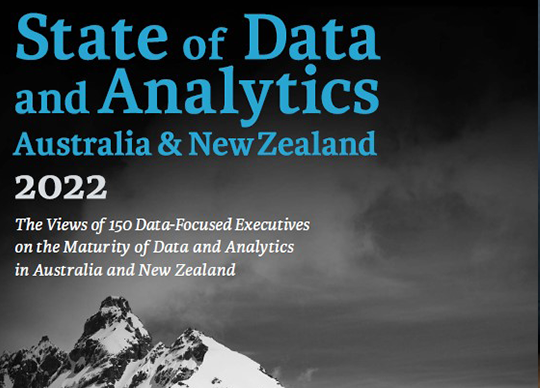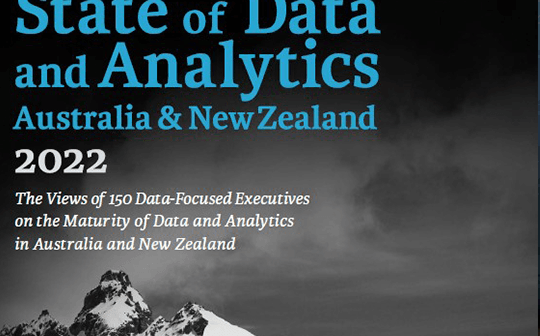
Data leaders in Australia and New Zealand are investing heavily in new data platforms and talent, but fewer than one in ten are driving strategic business decisions within their organization according to new independently conducted research from Qlik.
The report, titled “State of Data and Analytics, Australia and New Zealand, 2022,” developed by Corinium Global Intelligence and commissioned by Qlik, presents the findings of a survey of 150 data leaders from a range of key industries across Australia and New Zealand.
The survey reveals the industry is positioned for continued growth with many leaders saying they are focused on creating data-driven business cultures (47%) or actively developing new data platforms (47%). Demand for skills in data and analytics is also high, with many expecting to continue growing their teams over the coming year (65%). Regarding resourcing, the survey found 42% of data leaders find it challenging to hire and retain people with the right data skills.
“People in the data and analytics industry often think about a special moment where everything comes together, and you start using analytics and have data literate organizations,” says Joe DosSantos, Chief Information & Analytics Officer at Qlik. “When, in fact, the companies that are doing this right are making meaningful incremental progress against use cases that matter.”
The report also reveals a significant mismatch between the industry’s appetite for growth and organizations’ resourcing, governance and strategic priorities. When it comes to data and analytics’ role in the organizational direction, fewer than 10% of industry leaders say they are involved in critical strategic business decisions, with the majority (54%) saying their business influence is intermediate. Only 7% feel that data and analytics has a strong influence on strategic business decisions.
However, encouragingly, the increasing importance of data and analytics in overall business strategy is seen in changes to reporting structures. Last year, no surveyed data leader reported to the CEO. This year, 17% are now reporting to the CEO, while 31% report to a CDO, and 17% report to a CDAO. While there is still room to grow, these changes in reporting signal that the C-Level is recognizing the value of a data strategy.
“While the findings in our report show that there is still much work required to reinforce the importance of data and analytics to be considered a core driving force of the business, it is pleasing to see the growing influence of analytics leaders within the organisations,” says Paul Leahy, ANZ Country Manager at Qlik.
Nearly one-third (31%) of data leaders in Australia and New Zealand say their projects are not consistently prioritized and are siloed to business segments. On internal data governance, 33% say advice or practices are not strictly mandated, while 51% say formal data governance policies are only the responsibility of the data team.
“More than ever, business leaders are aware of data’s potential to improve productivity and drive business decision-making,” says Michael Jenkin, APAC Editor, Corinium Global Intelligence. “The report highlights that data leaders do face challenges as they look to evolve. However, the optimism for projects, demand for expertise and team growth expectations are positive signs we’ll see more organizations realise this potential.”
You can read the full report here.





